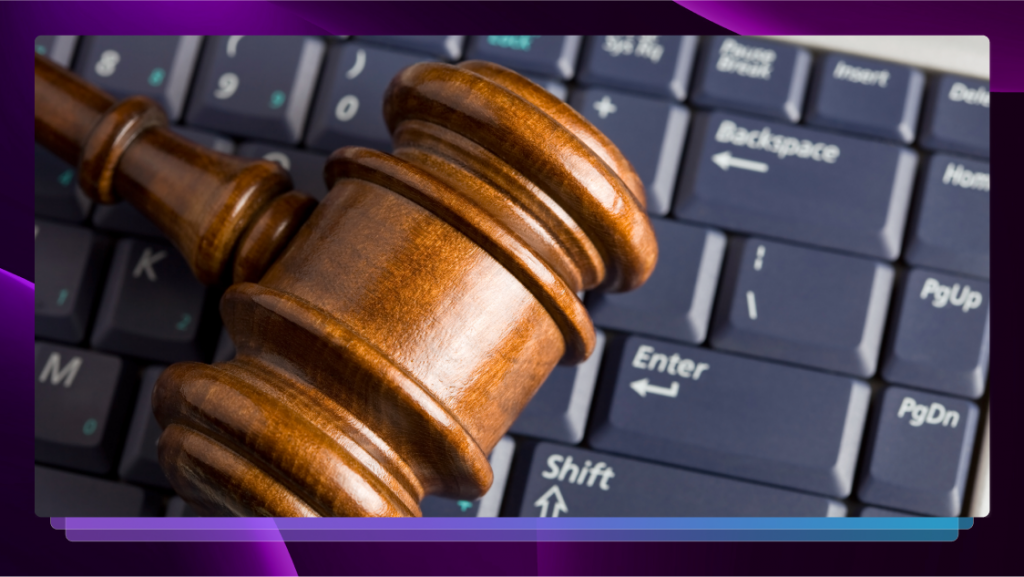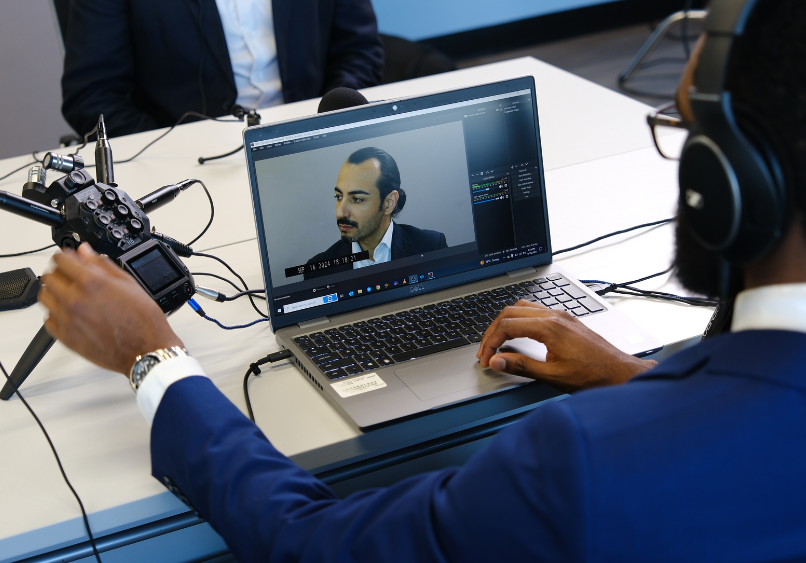The Significance of Legal Video Clip Depositions in Modern Legal Providers: What You Must Know
Lawful video depositions have actually ended up being necessary in today's lawful landscape. They supply a multidimensional sight of witness statements that traditional records simply can not match. By recording both non-verbal and verbal communication, these depositions improve the overall understanding of a witness's credibility. The performance of video clip depositions hinges on numerous factors, consisting of conformity with legal standards and finest techniques. Exploring these elements reveals their true importance in modern legal services
What Are Legal Video Clip Depositions?
Legal video depositions serve as an important tool in the lawsuits process. They include videotaping witness testimonies in a video clip style, catching both non-verbal and spoken interaction. This approach enables lawyers to document the attitude, expressions, and reactions of witnesses, supplying a richer context for the statement. Normally carried out in a controlled atmosphere, these depositions are led by lawyers that ask inquiries while a stenotype reporter documents the dialogue. The resulting video clip can be vital for trial prep work, as it allows lawyers to analyze the reliability of witnesses and refine their methods. Furthermore, lawful video clip depositions can be utilized in different legal contexts, ranging from civil disagreements to criminal situations. The visual and auditory aspects of video depositions improve the discussion of evidence, making it a vital element in the modern-day lawful landscape. Overall, they contribute significantly to the performance and efficiency of lawful procedures.

Advantages of Video Depositions Over Standard Techniques
Video depositions offer various benefits contrasted to standard approaches of taking witness testimonies. One substantial benefit is the ability to capture both audio and aesthetic elements, supplying an extra thorough record of the witness's declarations. This dual style improves clearness and allows legal experts to reference details nuances throughout trial prep work. In addition, video clip depositions facilitate remote engagement, making it easier for witnesses that may be inaccessible for in-person appearances because of geographical restraints or health issues.Moreover, video depositions can speed up the total deposition process, minimizing the moment and prices related to traveling and logistics. They also enhance accessibility, as tape-recorded depositions can be quickly shared among lawful groups and referenced at any time. This convenience adds to better case administration and prep work. In general, video clip depositions stand for a contemporary, effective method to collecting witness testimonies, lining up with the progressing needs of the lawful profession.
The Role of Body Movement and Tone in Testimonies

In legal video depositions, body language and tone play vital duties in sharing a witness's reliability and reliability. Nonverbal signs can supply understandings into a witness's psychological state, influencing how their statement is regarded. Understanding the impact of these aspects is important for jurors and lawyers alike when assessing the dependability of a testimony.
Nonverbal Interaction Insights
While spoken communication is usually emphasized in lawful testimonies, nonverbal signs such as body language and tone play an essential duty in sharing integrity and emotion. Observers of depositions may keep in mind that a witness's pose, motions, and face expressions can greatly influence perceptions of reliability. For example, constant eye contact may signify confidence, while staying clear of stare might suggest deceit or discomfort. The tone of voice-- its quantity, speed, and pitch-- can give sensations of sincerity or unpredictability. Legal experts have to be in harmony with these nonverbal signals, as they usually provide essential context that complements talked words. Understanding these subtleties can enhance the efficiency of depositions and influence the outcome of legal procedures.
Emotional Tone Impact
The psychological tone conveyed during legal statements greatly impacts just how a witness is perceived. Body language, vocal inflections, and faces play essential functions in shaping the story of a testament. A witness exhibiting confidence via constant eye get in touch with and a tranquil tone can instill a sense of dependability and interaction. Alternatively, indications of anxiousness, such as fidgeting or an unstable voice, might lead to uncertainty concerning their account. The nuances of emotional expression can influence the analysis of truths, making it crucial for lawyers to identify these hints. In video clip depositions, the auditory and aesthetic elements integrate, stressing the value of emotional tone in sharing genuineness and truthfulness within the legal process.
Reputation and Dependability
A vital variable in establishing reputation and trustworthiness throughout statements lies in the witness's body movement and intonation. Viewers commonly depend on non-verbal cues-- such as eye contact, position, and gestures-- to evaluate a witness's sincerity. For instance, a witness who preserves eye call and shows open body movement may be perceived as even more dependable and honest than one that avoids eye call or appears shut off. Additionally, tone of voice plays an important duty; a steady, tranquil tone can enhance the credibility of the statement, while fluctuations in pitch or volume might increase uncertainties. Inevitably, the mix of body language and singing tone significantly influences just how a witness's statements are gotten and translated in a legal context.
Ideal Practices for Conducting Video Clip Depositions
Performing video clip depositions requires mindful preparation and implementation to assure a efficient and clear presentation of testament. Initially, it is essential to choose a peaceful, well-lit area to lessen disturbances and protected optimum video clip high quality. The tools must be checked beforehand, including cameras, microphones, and illumination, to prevent technical concerns during the deposition.Next, parties involved should review the layout and procedures beforehand, making certain that everybody recognizes their duties. The deponent must be oriented on the process, consisting of exactly how to respond plainly and concisely.Additionally, keeping a specialist disposition throughout the session is crucial. This consists of refraining from look at this site talking over each other and verifying that all questions are guided suitably. Lastly, it is critical to videotape the deposition in a layout that permits for easy playback and testimonial, maintaining the integrity of the testimony for future usage.
Legal Factors To Consider and Compliance Issues
Exactly how do lawful considerations and compliance concerns affect the performance of video clip depositions? Attorneys have to navigate a complicated landscape of laws, ensuring that video clip depositions follow administrative regulations and standards. Compliance with laws concerning personal privacy, approval, and tape-recording methods is necessary. Getting explicit authorization from all events entailed is needed to stay clear of legal repercussions.Additionally, the admissibility of video clip proof in court can pivot on compliance with procedural needs. Guaranteeing that the devices made use of fulfills technological criteria is likewise essential, as low quality can weaken the deposition's reliability.Moreover, attorneys should understand any details state regulations that control video depositions, as these can differ substantially. Failing to address these factors to consider can not just threaten the stability of the deposition yet likewise impact the overall case approach, eventually impacting the client's legal outcomes.
Exactly How Video Depositions Effect Jury Perception
While video clip depositions can work as powerful tools in legal proceedings, their impact on court perception is significant. The auditory and visual elements of video clip recordings supply jurors with a more comprehensive understanding of witness behavior, integrity, and psychological actions. This multimedia strategy can improve the jurors' capacity to assess the dependability of statement contrasted to typical text-based transcripts.Moreover, video depositions allow jurors to observe body language, intonation, and faces, all of which can affect their interpretation of the witness's declarations. The existence of a witness on screen can humanize them, promoting empathy and link, which may guide jurors' opinions. Conversely, a witness that shows up undependable or incredibly elusive on video clip might result in adverse assumptions that influence a court's decision. Ultimately, the vibrant nature of video depositions plays an essential function fit exactly how jurors interpret evidence and reach their judgments.
The Future of Video Depositions in Legal Method
As improvements in technology remain to reshape the legal landscape, the future of video depositions is positioned for considerable evolution. Advancements such as fabricated intelligence, virtual truth, and boosted video clip conferencing devices are anticipated to streamline the deposition procedure and enhance ease of access. Lawful specialists might use AI-driven analytics to evaluate witness reputation and instance strength extra effectively.Moreover, the assimilation of online truth could allow courts to experience immersive simulations of depositions, supplying deeper context and understanding. Additionally, the fad toward remote depositions is most likely to linger, using higher versatility for lawyers and clients alike.As remote work becomes increasingly stabilized, video clip depositions will likely become basic technique, minimizing costs and time restraints related to conventional approaches. Generally, these technical improvements guarantee to enhance the efficiency, performance, and ease of access of video clip depositions in legal technique, eventually changing exactly how attorneys get ready for trial.
Often Asked Questions
Just How Much Do Lawful Video Depositions Commonly Expense?

Can Video Depositions Be Used in Any Type Of Kind of Case?
Video depositions can be used in various kinds of cases, consisting of civil, criminal, and family regulation. Their flexibility enables lawyers to present witness testaments properly, adjusting to the particular needs of different legal situations.
What Devices Is Required for a Video Clip Deposition?
To perform a video clip deposition, essential devices includes a top quality camera, microphone, illumination, and a trustworthy recording gadget. Furthermore, a computer system with editing software application may be necessary for post-production and formatting the final video clip.
For how long Does a Normal Video Clip Deposition Last?
A typical video clip deposition lasts between two to four hours, relying on the intricacy of the situation and the number of questions presented. Prolonged sessions may occur, yet breaks are typically integrated for participant convenience.

Are Video Depositions Admissible in Court?
Video depositions are normally permissible in court, provided they follow lawful requirements and guidelines of evidence. Their usage boosts clearness and maintains witness testimony, assisting in the judicial procedure throughout tests and hearings. Legal video clip depositions have actually come to be vital in today's lawful landscape. Additionally, legal video clip depositions can be made use of in numerous lawful contexts, ranging from civil disputes to criminal cases. In addition, video depositions facilitate remote participation, making it find this much easier for witnesses who may be inaccessible for in-person appearances due to geographical restraints or wellness issues.Moreover, video clip depositions can quicken the overall deposition procedure, minimizing the time and prices linked with travel and logistics. Making certain that the equipment utilized meets technological criteria is additionally essential, as inadequate quality can weaken the deposition's reliability.Moreover, lawyers must be mindful of any type of specific state laws that control video clip depositions, as these can vary significantly. Additionally, the fad towards remote depositions is likely to linger, using greater adaptability for attorneys and customers alike.As remote work comes to be significantly stabilized, video depositions will likely become basic method, lowering prices and time restraints connected with traditional approaches.